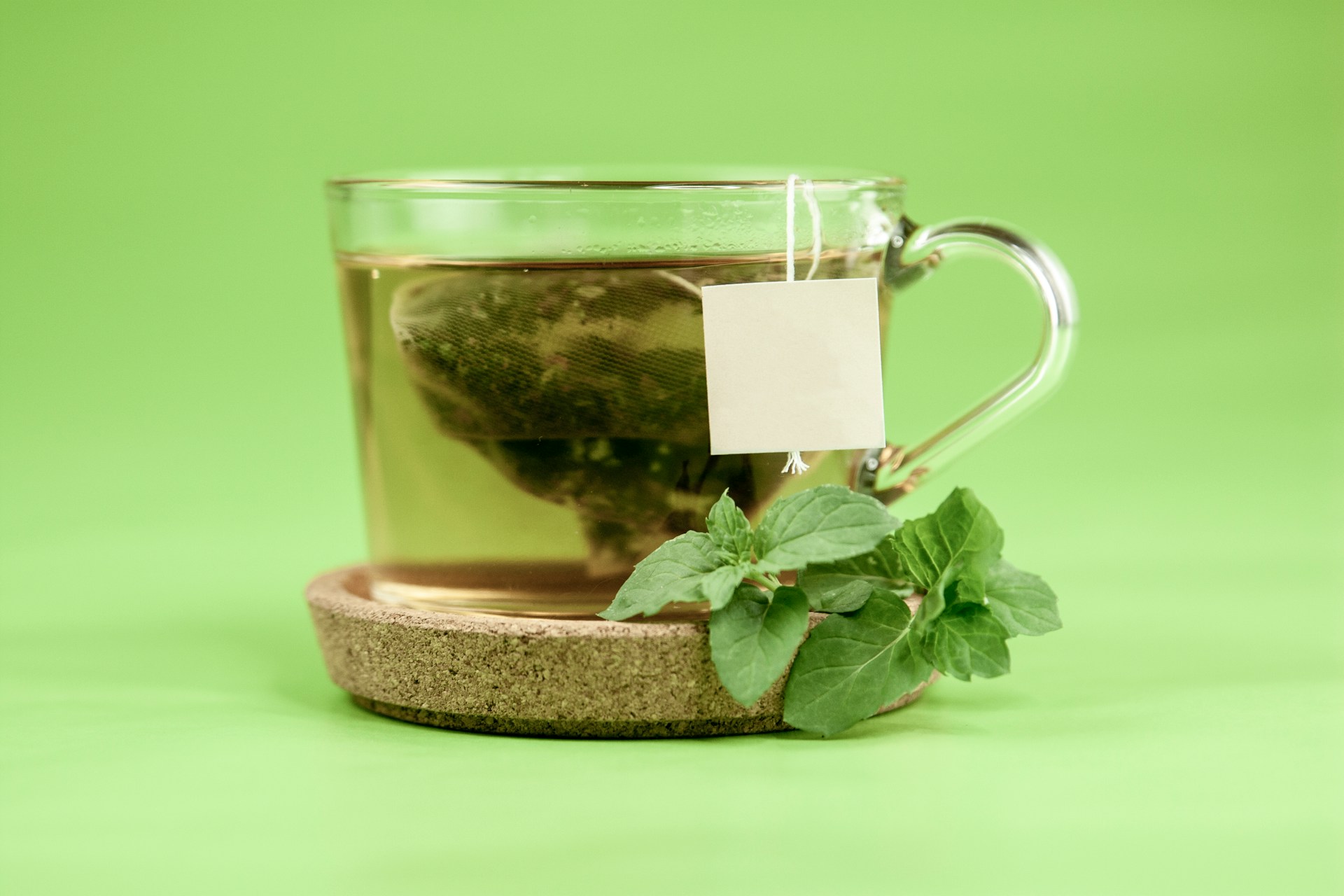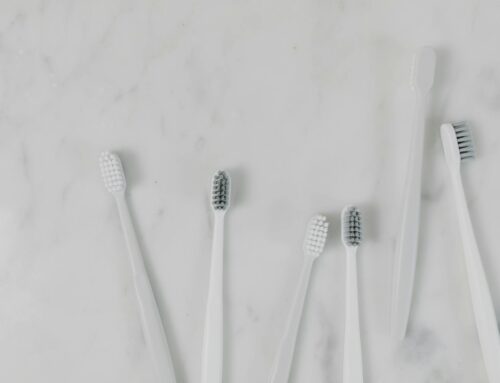Oral Mucositis is a condition that commonly occurs following some cancer treatments. Treatments for the condition are limited. However, new research suggests that Green tea could have a positive impact in alleviating the symptoms of mucositis. This research adds to the growing body of evidence that suggests green tea provides many health benefits.

Green tea is a popular drink around the world. It is known for its light and fresh taste, vibrant colour, and its use in many remedies.
Now, recent research has suggested that green tea may be effective in assisting against oral mucositis, which is a debilitating oral condition [1].
This research adds to the growing portfolio of evidence which suggests that green tea provides a plethora of health benefits.
Green tea
Green tea is a type of tea. It is made from the unoxidized leaves and buds of the Camellia Sinesis bush.
It is a popular drink in many countries. However, it is also known for the range of health benefits that have been attributed to its consumption. A key part of this is catechins within the tea.
These health benefits have been established through scientific research. For example, various studies have shown a connection between green tea and improved cognition, fat burning, managing blood sugar levels, and heart disease prevention [2].
Past research has tentatively linked green tea to improved oral health due to its antioxidant qualities [3]. However, further research into this link is needed to validate this connection.
Oral Mucositis
The research involved looking at a treatment for oral mucositis. This is a common oral health condition characterized by the mouth being sore and inflamed [4].
The symptoms of the condition include mouth ulcers, a sore mouth, a dry mouth, and a fungal mouth infection [4]. Therefore, there are many issues caused by this condition.
Mucositis is a common side effect of cancer treatments Chemotherapy and Radiotherapy. It affects around 30-40% of patients that undergo such treatments [1].
Fortunately, it is a temporary condition, but can cause discomfort for its duration. Moreover, treatments have limited effectiveness. They include painkillers, mouthwashes, saliva substitutes and rinsing the mouth with salt water frequently [4].
The Research
The research was carried out by a team from Tokyo University of Science in Japan. Their findings have been published in the ACS Omega journal [1].
The researchers pointed out that one of the most common treatments – mucoadhesive tablets, has limited effectiveness [1]. However, they wanted to build on the adhesive element of that treatment.
Therefore, the researchers wanted to design an adhesive film that could provide prolonged relief to those with the condition [1]. This approach would result in more effectiveness, is less expensive than tablets, and more convenient.
The film is a thin and flexible material that can fit the mouth. Therefore, this would provide easy access to affected areas, where active ingredients could be delivered [1].
The film was created using a combination of xyloglucan, which was extracted from tamarind seeds, and green tea extract [1]. The extract contained 75% catechins.
Xyloglucan is a natural gelling agent and forms a structure that can mimic the mucin network of the mouth, which gives it the quality of being capable of adding adhesive properties to the film [1].
This was combined with green tea extract. The researchers were interested to see the outcome to the physical and chemical properties of the gels and films produced by this combination [1].
The xyloglucan and green tea extract were combined. Then, the solution was dried over a seven day period. This resulted in the solution becoming firmer and stronger in terms of its adhesive properties [1].
It was important that it is strong, as the mouth is an active part of the body. The researchers simulated oral conditions to test the film – with it producing successful results [1].
Furthermore, they found that their film exceeded the adhesive force of over-the-counter products. Overall, the adhesive film produced an excellent result.
Summary
The researchers were very pleased with the findings, with the adhesive film producing strong results. The idea is that the film will be able to alleviate the symptoms and painful areas of those with mucositis.
This research adds to the growing body of evidence of green tea’s health benefits. In this study, the researchers confirmed that green tea was able to neutralize harmful free radicals that are generated during cancer treatments [1].
Professor Takehisa Hanawa of Tokyo University of Science served as the lead author. He commented on the findings – which the researchers believe are very positive [5].
Hanawa explained that “our goal was to create a formulation for oral mucositis that patients could use easily and comfortably, helping to prevent the decline in quality of life and difficulties with eating caused by cancer treatments” [5]. Therefore, this goal was achieved.
Mucositis impacts the lives of those with the condition in several ways. Therefore, having an effective treatment like this adhesive film being created is very promising.
Thinking points…
[1] The findings are very positive. Green tea certainly appears to have some benefits, perhaps you could incorporate it into your diet? However, something far more important involves attending regular dental check-ups. These check-ups allow a dentist to take a look at your oral health, provide advice and suggest treatment if needed. We recommend that you book an appointment soon!
[2] So many of us are affected by cancer in some way. As seen above, oral mucositis is an added problem for those recovering from the condition. However, not everyone knows that a type of cancer that affects the mouth – oral cancer – exists. To reaffirm the above point, check-ups are crucial, as dentists will also look for any sign of oral cancer. Remember to attend a dental clinic regularly!
What we offer at Taradale Dental
Taradale Dental is a dental clinic based in Calgary, Alberta, Canada. At our Calgary dental clinic, we provide a range of services for our patients.
We advise our patients to attend our Calgary dental clinic at least twice per year for a regular dental check-up. At these check-ups, we provide a comprehensive review of a patient’s oral health. If any problems are detected, we have many treatments available. For example, these include cavity fillings and root canals. To strengthen your oral health, we recommend brushing your teeth at least twice a day and flossing regularly.
Here at Taradale Dental, we also have some cosmetic treatments available! These include dental implants, teeth whitening and Invisalign™! Our patients find that these treatments have a positive impact on their appearance, confidence and self-esteem.
Moreover, the fees of our treatments at our Calgary dental clinic Taradale Dental are set in line with the Alberta Dental Fee Guide. This ensures transparent and fair pricing, with no hidden costs.
We hope to see you soon at our Taradale Dental clinic in Calgary! You can find out more about us by visiting our website https://taradaledental.ca/!
References
[1] Hirose, K., Nitto, R., Yokota, S., Kawano, Y., Yamatoya, K., Tabuchi, A., Suzuki, Y., & Hanawa, T. (2024). Preparing and Characterizing of Xyloglucan Films Containing Tea Extract for Oral Mucositis. ACS Omega. 10 (1): p390-399. DOI: https://doi.org/10.1021/acsomega.4c06410.
[2] Warwick, K. W. (2023). 10 Evidence-Based Benefits of Green Tea. Available: https://www.healthline.com/nutrition/top-10-evidence-based-health-benefits-of-green-tea. Last accessed: 8th February 2025.
[3] Vyas, T., Nagi, R., Bhatia, A., & Bains, S. K. (2021). Therapeutic effects of green tea as an antioxidant on oral health- A review. Journal of Family Medicine and Primary Care. 10 (11): p3998-4001. DOI: https://doi.org/10.4103/jfmpc.jfmpc_943_21.
[4] NHS. (2023). Mucositis. Available: https://www.nhs.uk/conditions/mucositis/. Last accessed: 8th February 2025.
[5] Tokyo University of Science. (2025). Green Tea-Based Adhesive Films Show Promise as a Novel Treatment for Oral Mucositis. Available: https://www.tus.ac.jp/en/mediarelations/archive/20250121_5268.html. Last accessed: 8th February 2025.


